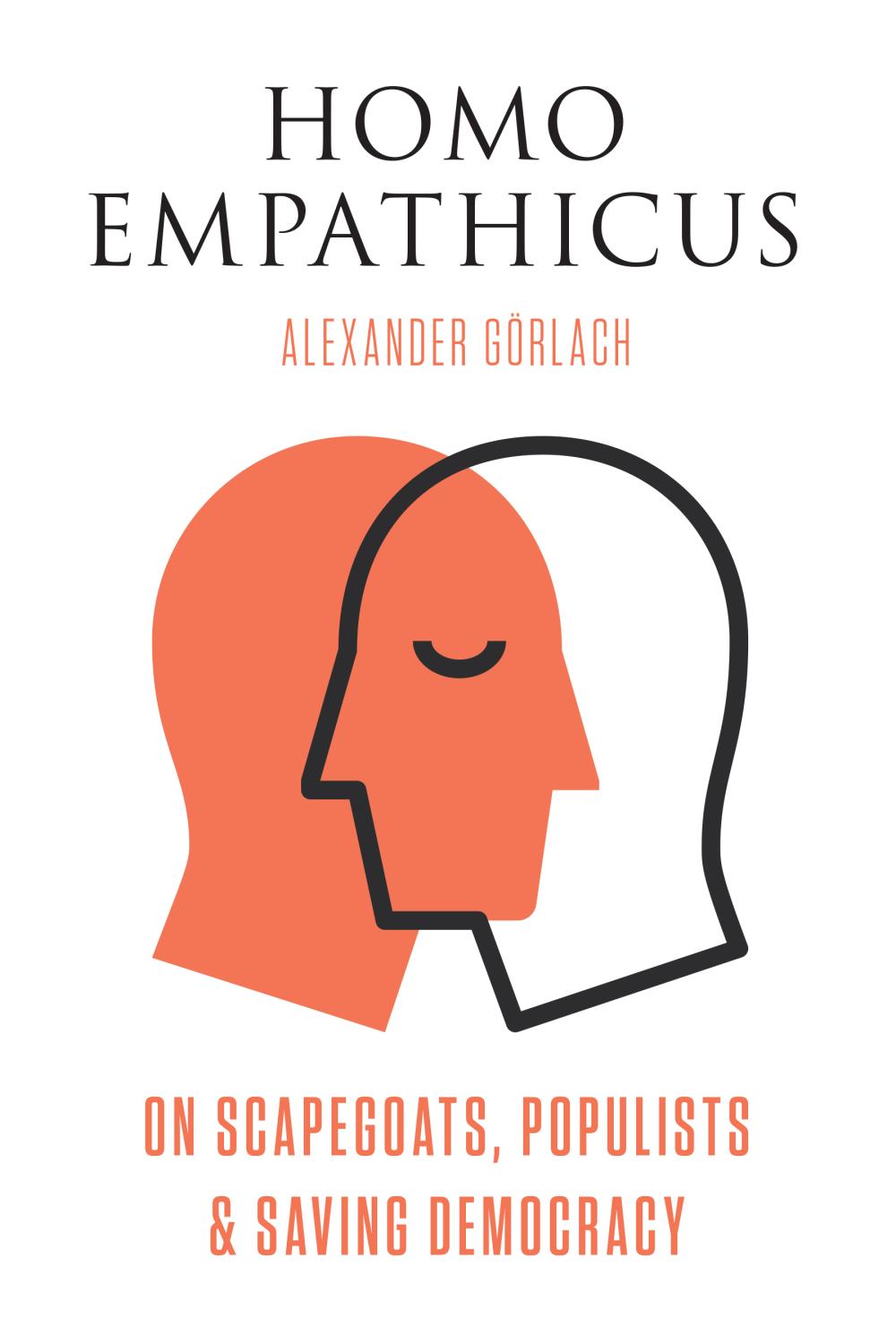“Homo Empathicus” & the Pandemic, with Alexander Görlach
How societies can preserve democracy with a human-directed social contract
The book’s focus on the financial crisis underscores how the promises of liberal democracy were repeatedly broken by financial and political elites, with a backlash emerging in the form of “us-against-them” populism. By undermining the hopes and livelihoods of millions of people, the crisis created its own narrative, with consequences capable of causing lasting damage to the liberal world order.
To restore the values of liberal democracy, the author proposes a “truly human social contract” supported by a narrative of empathy. The basis of such a contract is a new view of civil and social rights as an expression of human dignity, with economic factors understood as moral concerns, not just as a matter of who gets the most.
Praise for Homo Empathicus
“Alexander Görlach makes the case for empathy in any just society. He defends with passion and thoughtfulness a cosmopolitan worldview that perceives others not as “us-versus-them,” but with an open mind. Identity in his world unites without dividing—and has the dignity of every person at its heart.”
—Kwame Anthony Appiah, professor of philosophy and law, New York University; author of Cosmopolitanism: Ethics in a World of Strangers and The Lies That Bind: Rethinking Identity
“Alexander Görlach looks out over our tribal world and offers a diagnosis and a corrective. Resentment has given rise to a surge of populism that is eroding the principles that hold democracies together. The need to see each other as fellow citizens, to talk to and understand others, is essential to restore community and civility.”
—Steven Pinker, Johnstone Family Professor, Department of Psychology, Harvard University
“The battle between free, democratic societies and authoritarian governments is already ongoing. Reading Homo Empathicus, you understand why self-proclaimed strongmen fight freedom so fiercely: because freedom is the better model! To ensure that democracy prevails, the free world needs to stand united against the authoritarian threat and protect vulnerable places like Hong Kong and Taiwan.”
—Joshua Wong, democracy activist, Hong Kong
“Homo Empathicus shows us how populist responses to the economic disruptions of the early 2000s took on the mantle of identity and nationalism, to create a toxic brew. Görlach suggests a way out: empathy is the antidote, neutralizing the fears and anger at the “other” and making dignity and respect for fellow citizens the centerpiece of a constructive politics.”
—Daniel Ziblatt, Eaton Professor of Government, Harvard University; co-author of How Democracies Die
Author
Alexander Görlach is a senior fellow at the Carnegie Council for Ethics in International Affairs and a member of the European Academy of Sciences and Arts. He served in various positions at both Harvard and Cambridge University. Alex holds PhDs in linguistic and in comparative religion. He is an op-ed contributor to the New York Times.

